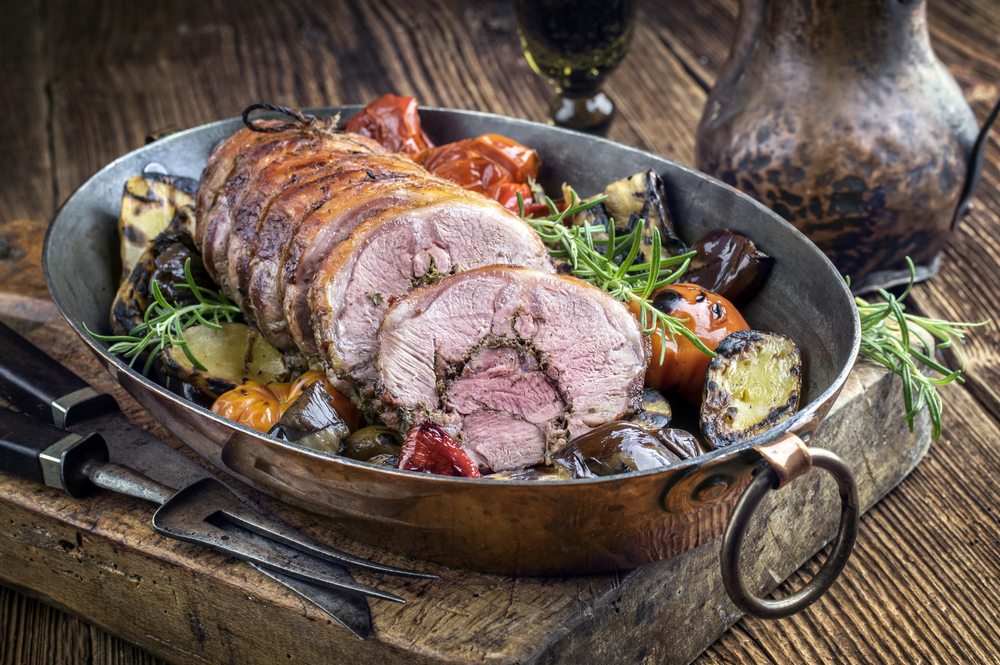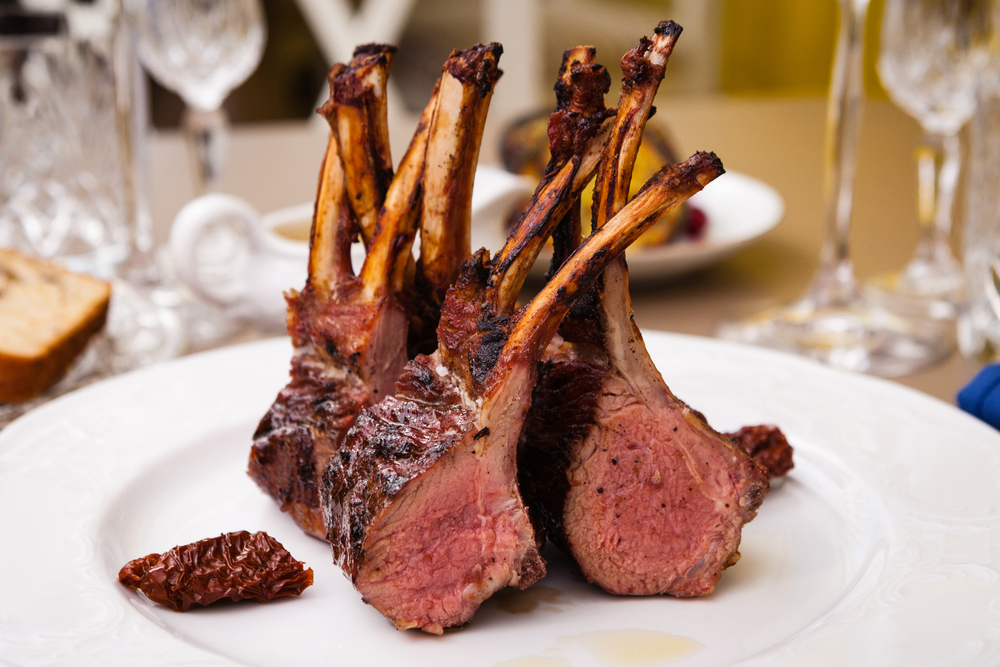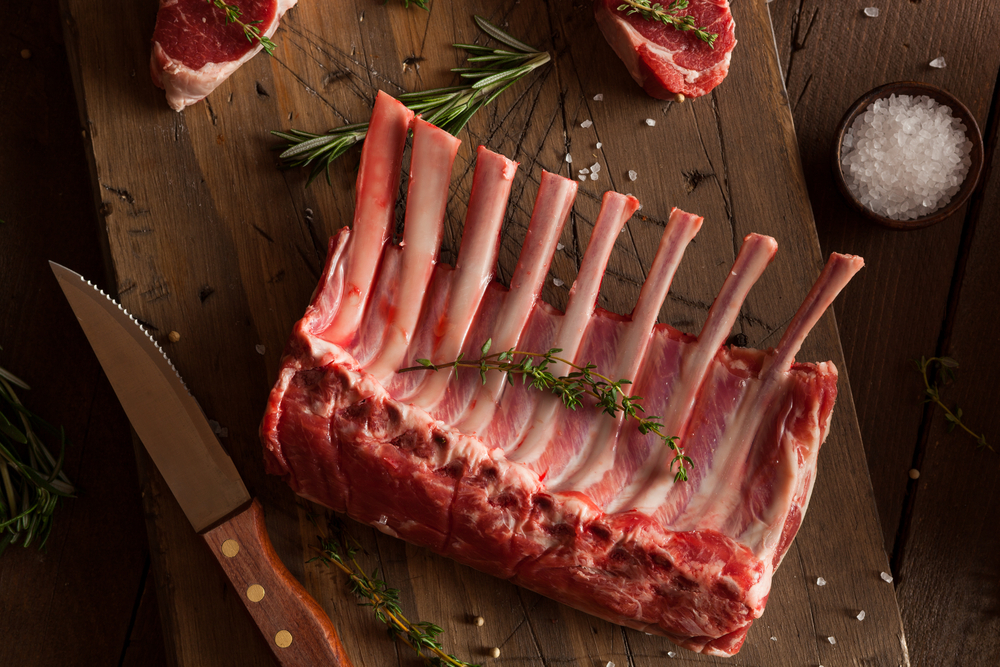Why Lamb Deserves a Spot on Your Table
When it comes to culinary delights, lamb stands out as a uniquely versatile and delicious option among meats.
Whether you’re hosting a lavish dinner party or enjoying a family meal, incorporating lamb into your menu not only elevates the dining experience but also offers a plethora of health benefits.
Nutritional Benefits
Lamb is a nutritional powerhouse, offering significant health benefits beyond its delightful taste. A 100-gram serving provides approximately 25 grams of high-quality protein, essential for muscle growth, repair, and overall health.
In addition to protein, lamb is a rich source of vital vitamins and minerals. It boasts high levels of vitamin B12, crucial for nerve function and DNA production, zinc, which plays a key role in immune function and wound healing, and iron, necessary for oxygen transport in the blood.
This makes lamb an excellent choice for individuals with dietary restrictions or those seeking a nutrient-dense addition to their diet.

The Unique Flavour Profile of Lamb
Unlike other meats, lamb possesses a distinct richness that can be attributed to its fat content, which varies depending on the breed and the way it is raised. The taste can range from mild to robust, offering an exquisite depth that pairs beautifully with a variety of herbs and spices.
The aroma of lamb when cooked is simply irresistible. It can evoke memories of traditional family gatherings and special occasions.
The versatility of lamb means it can be prepared in numerous ways, whether it’s slow-roasted, grilled, or braised. Each cooking method brings out different facets of its flavour, making it an exciting ingredient to work with in the kitchen.
Various Cuts of Lamb and Their Best Uses
Lamb offers an array of cuts, each uniquely suited for different culinary delights. Lamb chops, for example, are excellent for grilling and can be marinated to bring out their natural flavours.
The leg of lamb is a favourite for roasting, making it the centrepiece of festive meals, whilst lamb shanks transform into melt-in-your-mouth goodness when slow-cooked.
For those who love hearty stews or curries, the shoulder of lamb, a more budget-friendly option, excels with its rich, robust flavour.
Lamb loin, a leaner cut, is ideal for quick cooking methods like pan-searing, offering a tender and juicy result.

Cultural Significance and Traditions
Lamb holds a cherished place in many culinary traditions, often serving as the centrepiece for celebrations and festivals. In Mediterranean and Middle Eastern cultures, lamb is a staple in dishes like kebabs, tagines, and stews, symbolising communal eating and togetherness.
In Europe, particularly in countries like Greece and Italy, lamb is synonymous with festive gatherings. Easter celebrations frequently feature roast lamb, symbolising renewal and sacrifice in Christian tradition.
In Islamic traditions, lamb is particularly significant during Eid al-Adha. Families come together to share lamb dishes, and a portion of the meat is often donated to those in need, reinforcing values of charity and compassion.
Lamb‘s cultural resonance extends to India, where it is a key ingredient in many regional cuisines. Dishes like biryani and Rogan Josh showcase lamb‘s versatility and its ability to absorb intricate spice blends, resulting in complex, mouth-watering flavours.
The cultural significance of lamb around the world highlights its role not just as a meal, but as a symbol of unity, tradition, and shared heritage.
Delicious Lamb Recipes
From sophisticated dinners to comforting home meals, lamb can be the star of any occasion. Here are a few delightful recipes to inspire your culinary adventures:
- Barnsley Chops with Big Chips and Crushed Peas
- Greek-Style Lamb Stacks with Mint Relish
- Autumn Lamb with Blackberries and Honey
- Garlic and Herb Butter Roast Lamb with Cider Gravy

Pairing Lamb with Wines and Side Dishes
Pairing lamb with the right wines and side dishes can elevate your dining experience to new heights. For red wine enthusiasts, options like Cabernet Sauvignon, Syrah, or Merlot bring out the meat’s rich and complex flavours.
If you prefer white wine, a full-bodied Viognier can offer a refreshing balance to lamb’s robust taste.
When it comes to side dishes, consider options that complement the succulent nature of lamb. Roasted root vegetables, such as carrots and parsnips, bring a touch of earthy sweetness, while creamy mashed potatoes provide a comforting contrast.
Fresh salads featuring seasonal greens and herbs like mint and rosemary can add a vibrant and aromatic element to your meal.For an added layer of sophistication, incorporate ingredients that harmonise well with lamb.
Garlic and rosemary are classic pairings that can be infused into side dishes or used as marinades.
Mint sauce or jelly is another traditional accompaniment that provides a refreshing counterpoint to lamb’s richness. By thoughtfully pairing lamb with complementary wines and sides, you can create a well-rounded and unforgettable culinary experience.